Affordable housing for people with I/DD is in low supply. Learn what ALSO is doing to make a difference.
Affordable housing for people with I/DD is in low supply. Learn what ALSO is doing to make a difference.
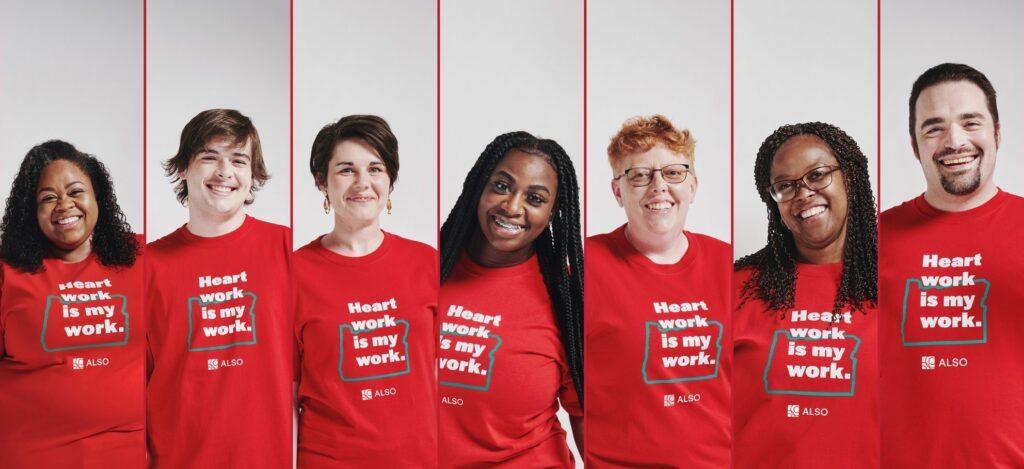
At first glance, a direct support professional looks a lot like primarily a caregiver for someone with a disability— assisting with personal care, household chores, or other daily tasks. But frankly, nothing is further from the truth.
The knowledge, skills, and abilities that excellent DSPs use result in major life-long benefits to the people they support, such as:
In short, our DSPs provide valuable assistance in helping the people we support to lead self-directed lives that are productive and fulfilling. In this blog, the staff at ALSO— Oregon’s premier provider of support services for people with intellectual and developmental disabilities— describe what it really means to be a top-notch DSP. Discover our list of key direct support professional responsibilities below.
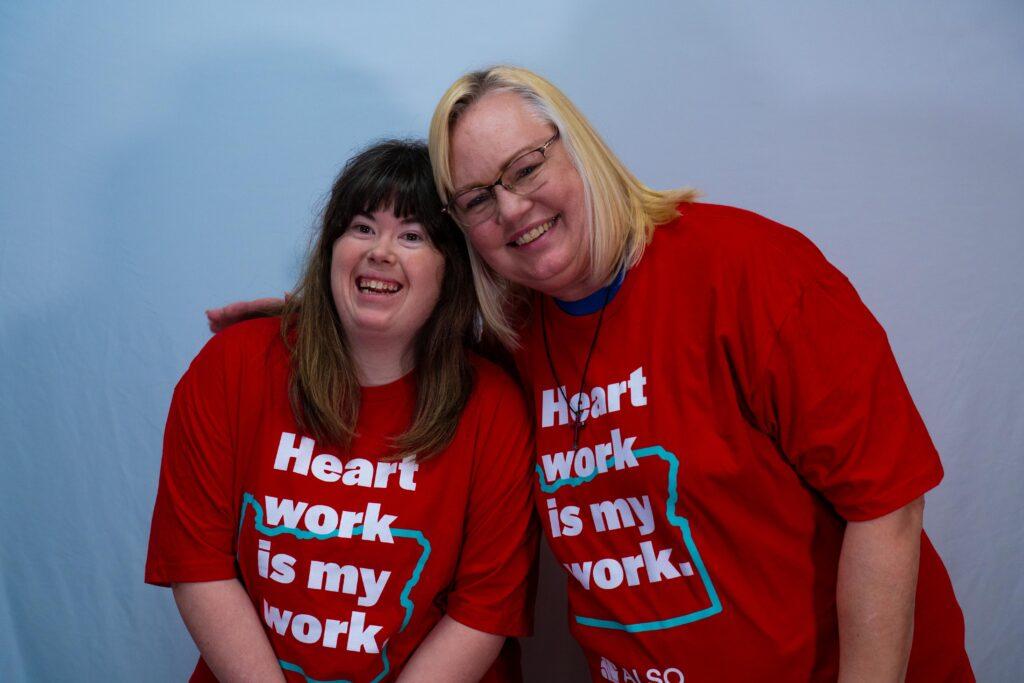
Susan L. Parish, Director of the Developmental Disabilities Training Institute at the University of North Carolina, states that the person-centered approach involves deep exploration of the following questions:
It’s a much more appreciative perspective of the individual’s strengths and capacities. Person-centered guidelines stress the importance of openly acknowledging the rights of all individuals with disabilities to make informed choices; and to take responsibility for those choices, including any related risks. Skilled DSPs provide the necessary supports to help people build upon their own strengths, goals, and talents, including the contributions they can make to their community.
LEARN MORE: Person-Centered Thinking in Developmental Disabilities – Dreaming Possible Dreams
Over the decades, the professional job duties of DSPs have steadily expanded from direct care in daily activities such as personal hygiene, meal preparation, and medication management.
Depending on a person’s goals, community inclusion looks different from person to person. A DSP may help assist in problem-solving for a wide variety of tasks and life skills that those without disabilities regularly take for granted. Here are some examples:
Thanks to tireless efforts by disability advocates, family members, and people with disabilities, community integration is now recognized as human right of all individuals with disabilities.
Since the 1800s, people in the US have steadily advocated for the rights of people with disabilities in the areas of independent living, healthcare, employment, and community inclusion. Anti-discrimination laws were finally put in to place with the passing of the Americans with Disabilities Act in 1990.
Direct support professionals play a major role in this advocacy movement. Because they work on a daily basis with those that they support, they have accurate and individualized knowledge regarding abilities, challenges, and life goals. Furthermore, they have seen firsthand how people with disabilities can make positive contributions throughout a community. This information goes a long way when communicating with employers, teachers, medical professionals, and family members.
LEARN MORE: Oregon Disability Rights – Everything You Need to Know
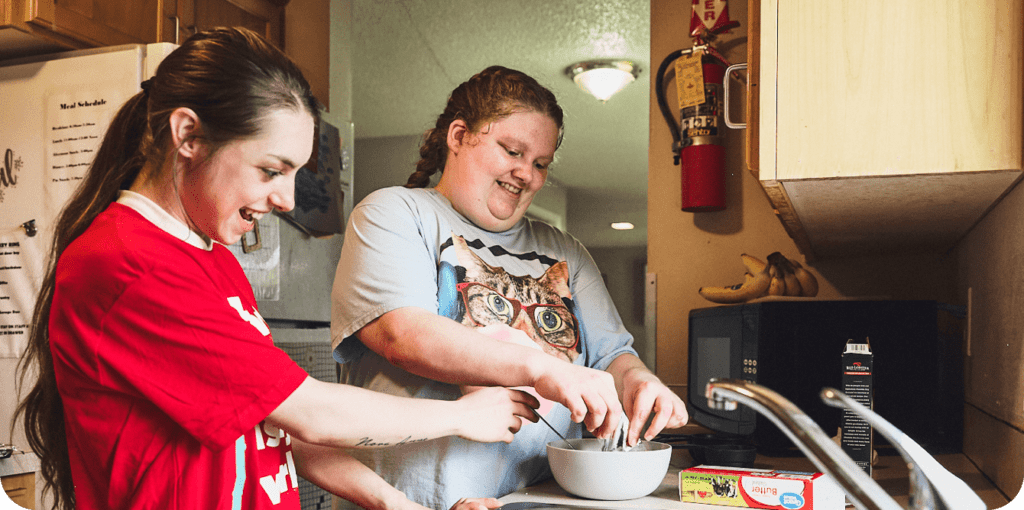
DSPs are literally the backbone of supported living when it comes to promoting independence in daily activities. Various healthcare professionals (such as occupational, and physical therapists, psychologists) undoubtedly play a role. However, it’s the DSPs who provide consistency and follow-through regarding safe and effective completion of daily routines. Most DSP positions are completely different from day-to-day. Here’s a snapshot of the many ways that direct support professionals promote independence:
LEARN MORE: Assistive Technology in the Workplace for People with Disabilities
It’s not always easy for busy DSPs to allocate time to write progress reports and other forms of documentation. Nevertheless, it’s an important aspect of the job. Documentation is a very efficient way to communicate with other DSPs, administrators, and care professionals. In addition, it’s required by Medicaid, Medicare, and other insurance carriers. It provides assurance that beneficiaries are getting the appropriate care. Documentation validates the need for supported living services to payors, grant funders, and other financial resources.
There are definitely occasions in which medical emergencies or other types of crises occur. Good documentation shows that staff members handled these difficult situations appropriately.
LEARN MORE: Documentation: What’s Your Role?
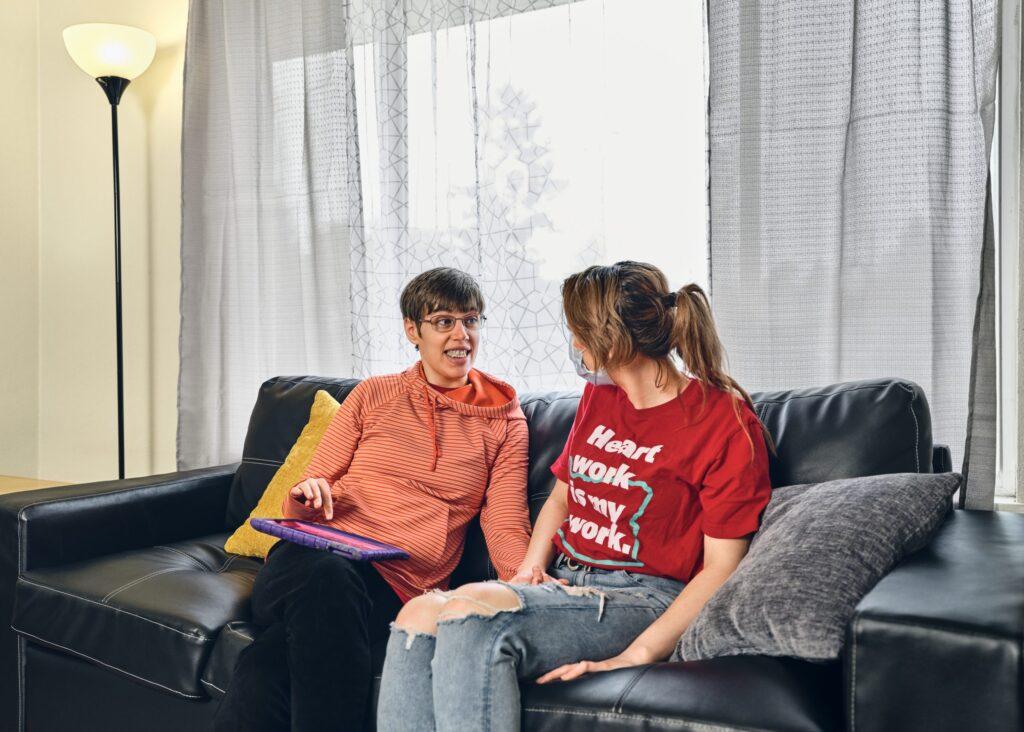
The ISP is a written document that contains details of the supports, services, and resources that a person with a disability will use to achieve their goals, outcomes, and dreams for the future. As emphasized by the Oregon Department of Human Services, each ISP is unique to the individual.
The ISP process must be completed in accordance with the person-centered planning approach. This means that the process is led by the individual with the disability. People on the ISP team are invited and approved by the person who has the disability.
Because skilled and caring direct support professionals can make excellent collaborative partners in assisting the individual with their chosen goals and desires, they are often invited to take part in the ISP process. This document creates an important “road map” for people to follow when providing services to the person with disabilities.
LEARN MORE: The Compass Project – Individual Support Planning
In order to have a positive effect on the lives of individuals with disabilities, all communications must be effective and respectful. Of course, this is critically important during all interactions with the people we support.
In addition, high-quality communication skills are necessary at staff meetings, when speaking with employers and/or community members, and when interacting with family members and other service providers. Effective communication with others is the key to relaying information that is accurate, easy-to-understand, and sensitive.
LEARN MORE: Communicating with and About People with Disabilities
Successful DSPs are known for having the absolute best interpersonal skills. This creates a productive, meaningful, and positive environment for supported persons, fellow employees, and community members. Good interpersonal skills include the following:
There will always be situations in which a DSP must be particularly caring and sensitive. Sometimes, a supported person may experience disappointments, such as a job loss, or unsatisfactory academic scores. DSPs must be adept at guiding them in accepting challenges, moving forward, and maintaining a positive outlook.
At any point during the work hours (day or night), a DSP may suddenly be called on to respond to various types of difficult situations, including and not limited to:
LEARN MORE: About the National Alliance for Direct Support Professionals
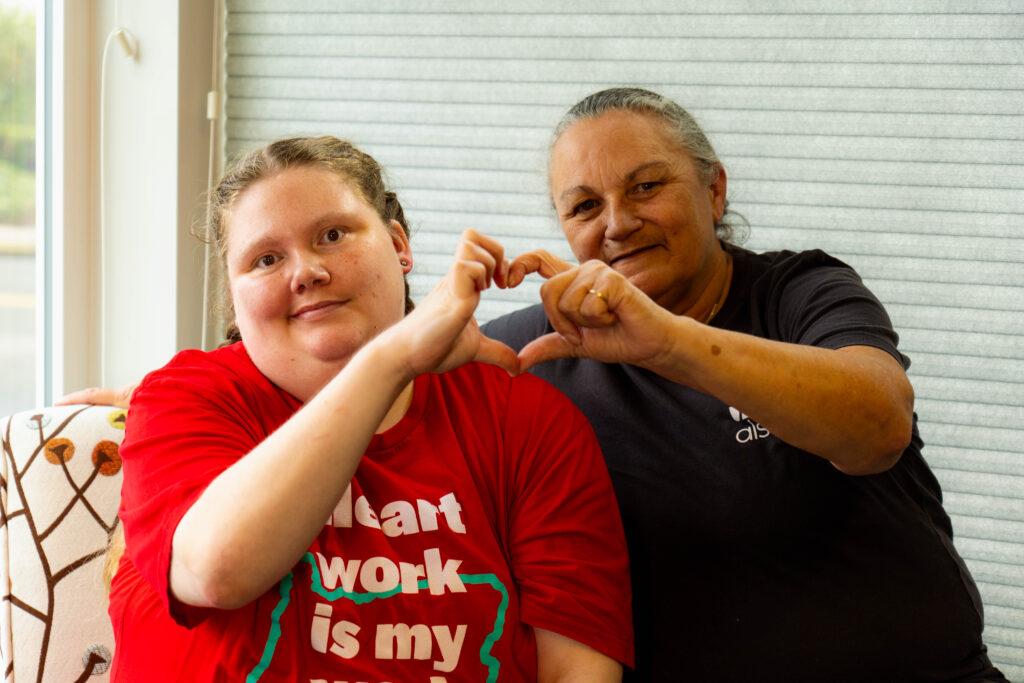
Are you interested in starting a career as a Direct Support Professional?
Are you interested in growing your contributions, expertise, and passions as a DSP– with one of the best support services organizations on the planet?
ALSO is a 25+ year non-profit that proudly provides support services to people with intellectual and developmental disabilities in 9 Oregon counties. We have consistently been voted among the Top 100 Oregon non-profits to work for since 2015. Our diverse workforce celebrates all backgrounds as we stand up for equity, diversity, justice, and full community inclusion.
We know that DSP work is hard work. But still, Wendy, a long-time DSP, says she wakes up happy to go to work every day. She states, “Knowing that I’m changing lives makes this the best job I have ever had.” At ALSO, we call it Heart Work, because helping others comes from the heart.
All you need is a high school diploma or GED equivalent to begin your journey. We offer training programs and other opportunities for continuing education, plus an extremely supportive leadership that is dedicated to your professional growth.
Currently, we employ over 350 advocates and continue to grow. Additionally, we offer several in-person hiring events the third Friday of most months. Check out our current hiring events here for exact dates.
LOCATION: ALSO Portland Office – 10541 SE Cherry Blossom Drive, Portland, OR
Can’t make it to one of the in-person hiring events? Check out our Career Page and read through our job descriptions.
Make a major change in your life…as you change the lives of others.
Contact Us
Portland: (503) 489-6565; info@alsoweb.org
Central, Eastern, and Southern Oregon: (541) 410-0317; centraloregon@alsoweb.org

Sign up for our newsletter to get our latest news, content, and job opportunities.
Help us ensure that everyone has the same opportunities in their home, workplace and community. Let’s make dreams!
